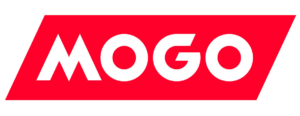Best Canadian Stock Trading App: 2024 Picks
Are you itching to invest in the Canadian stock market? If so, finding the best Canadian stock trading app should be your first step.
There are many trustworthy and free stock trading apps/platforms. But which one’s the best?
Don’t break a sweat – we’ve done the research for you. Have a look.
The Best Canadian Stock Trading Platform: Top 7 Countdown
Here’s our table containing the best seven stock trading apps in Canada.
| Rank | Company | Reviewlution Rating | Features | Account Minimum
(in CAD) |
| 1. | Scotia iTrade | 10/10 |
Best Overall Stock Trading App in Canada
|
$0 |
| 2. | Interactive Brokers | 9.7/10 |
Best App for Trading US Stocks in Canada
|
$100 |
| 3. | MogoTrade | 9.5/10 |
Best Free Trading App for Stocks in Canada
|
$0 |
| 4. | TD Direct Investing | 9.3/10 |
Best Stock Trading App for Beginners
|
A minimum of $100/month (takes away quarterly maintenance fees) |
| 5. | CIBC Investor’s Edge | 9.2/10 |
Best App for Day Trading in Canada
|
$0 |
| 6. | RBC Direct Investing | 9/10 |
Best Trading App for Active Investors in Canada
|
$0 |
| 7. | Desjardins Online Brokerage (Disnat) | 9/10 |
Best Low-Fee Stock Trading App in Canada
|
$0 |
Now, let’s find out more details about the stock trading apps mentioned above.
The Best Canadian Stock Trading Platform: Short Reviews
The pile of discount brokerage platforms for stock trading in Canada is continuously rising — which makes it harder to keep up with the flow.
Thus, we decided to compare some of the most popular ones. Based on their
- account options,
- fees,
- ease of use,
- crypto availability, and other features.
We present you with the best apps for stock trading in Canada.
1. Scotia iTrade Review
- Trading Fee: $9.99 + $1.25 per contract ($4.99 – active traders)
- Account Fee: starting from $25
- Minimum Deposit: $0
- ETF Transaction Cost: $9.99 ($4.99 – active traders)
- Option Fee: $9.99/ $4.99 + $1.25 per contract
- Inactivity Fee: $25 quarterly for accounts with less than $10.000 in funds]
- Mobile App: Yes
- Customer Support: Phone, Email
One of the best stock trading apps for active investors and our overall top pick among stock investing apps in Canada is structured upon two main platforms.
The Scotia iTrade Flightdesk consists of a Standard Package (from $29.95 – $39.95) and Premium Package (from $39.95 to $79.95).
Active investors can enjoy the special iClub membership (Golden or Platinum) based on the total number of investments and assets made. That said, some customers feel that Scotia iTrade fees are a bit high, however, note that you can completely waive it by maintaining a $10.000 minimum account balance.
Moreover, this platform works with robust securities: from stocks and options to GICs and IPO, mutual funds, and all possible accounts to open and start trading. However, the best asset is the ‘free’ access to $100.000 in CAD/ US fake funds to connect with the platform and understand the process of trading.
Pros:
- Numerous options for US and Canadian securities
- Automatic recurring deposits
- Technical analysis tools
Cons:
- Seemingly high trading fees
2. Interactive Brokers Canada Review
- Trading Fee: $0.005 for USD/ $0.001 for CAD shares
- Account Fee: $0
- Minimum Deposit: $100
- ETF Transaction Cost: tiered (0.008 – 0.003 CAD); fixed rate (0.01 CAD)
- Option Fee: 0.65 USD per contract (minimum of $1 and NO base commission); 1.25 CAD per contact (minimum 1.50 CAD/order)
- Inactivity Fee: progressive – from $1 for accounts with a commission rate of less than $1 and < $1.000 in liquidity
- Mobile App: Yes
- Customer Support: Phone, Live Chat, Email
Interactive Brokers is a Canadian stock trading app for those seeking an international market to invest in various currencies and US equities.
To do so, you can use individual accounts and invest in the following:
- a taxable account,
- margin account,
- registered accounts (RRSPs, spousal RRSPs, and TFSAs),
- and unregistered accounts.
There are no minimums to open an account, and you get no less than 150 international markets in 33 countries globe-wide and 24 currencies to choose from with no standard commission.
Newbies can also benefit from the site’s traditional trading tools, given the access to 100+ tools, which can also come in handy to seasoned investors.
Furthermore, instead of a flat rate, Interactive Brokers Canada adapted its fee model to the investor’s activity. This means that the more frequent and ‘heavily loaded’ your investments – the lower the fees and rates.
However, only 4 of the most popular crypto coins are available for trade: Ethereum, Bitcoin, Bitcoin Cash, and Litecoin.
Ultimately, it’s important to note that Interactive Brokers has the lowest margin rates available on the market (up to 75% less than competitors).
Pros
- Competitive to low currency exchange rates
- IIROC and CIPF secured
- An award-winning platform
Cons
- Reportedly a complex (desktop) trading platform
3. MogoTrade Review
- Trading Fee: $0
- Account Fee: $0
- Minimum Deposit: $0
- ETF Transaction Cost: $0
- Option Fee: None
- Inactivity Fee: $0
- Mobile App: Yes
- Customer Support: Live chat
MogoTrade takes no fees whatsoever.
This platform offers many features (like crypto trading), and it’s probably the best you can get for as little as $1 since there is also no account minimum to start trading.
Currently, you can invest in stocks and ETFs, as well as crypto. The simplicity of its interface aids the platform’s user-friendly nature.
You can register an account with MogoTrade; however, keep in mind that you might not be able to start investing immediately. This is because their waitlist requires you to pass authentication before you can begin investing. This speaks volumes regarding its sharp security policy.
The platform is 100% legit and regulated by IIROC and CIPF. This means that they will reimburse registered and unregistered accounts up to the price of $1 million if the company goes bankrupt. Neat, eh?
Pros
- Entirely free trading platform
- Easy to use interface
- Free and real-live quotes
Cons
- Not available in Quebec
4. TD Direct Investing Review
- Trading Fee: $9.99 ($7 for active traders)
- Account Fee: Depending on the account type
- Minimum Deposit: $0, or a minimum of $100/month (it takes away quarterly maintenance fees)
- ETF Transaction Cost: N/A
- Option Fee: $9.99 + $1.25 per contract; $7 + $1.25 – active traders
- Inactivity Fee: $25 maintenance fee quarterly for accounts with less than $15.000 funds
- Mobile App: Yes
- Customer Support: Phone, Email, Social Media
Feature-rich and with an extensive choice of accounts to manage:
- TFSA, RRSP,
- RRIF, RESP,
- LIRA, LIF, RIF,
- RDSP, RSP,
- and you can also register margin/ cash accounts on this platform.
Unfortunately, crypto-trading isn’t listed in their rich offer of trading possibilities.
But, take your pick: equities, ETFs, mutual funds, options, precious metals, fixed income assets, term deposits, and GICs. You can also try trading via phone, which carries different costs than direct platform trading.
However, keep in mind that transferring accounts costs up to $150, so if you plan on using this platform – ensure you’re on the right track before switching accounts and experiencing extra costs.
Pros
- Option to choose an investment level (beginner to pro)
- Numerous trading securities and assets
- Access to multiple platforms
Cons
- High flat rate fees and maintenance
5. CIBC Investor’s Edge Review
- Trading Fee: $6.95 ($4.95 – active traders)
- Account Fee: $100 annual (can be waived)
- Minimum Deposit: $0
- ETF Transaction Cost: $6.95 ($4.95 – active traders)
- Option Fee: $6.95 + $1.25 per contract/ $4.95 + $1.25 – active traders
- Inactivity Fee: $100 annually for accounts $25.000/ $10.000 or less funds
- Mobile App: Yes
- Customer Support: Live Chat, Email, Phone
Another trading platform in Canada is the Investor’s Edge platform by the Canadian Imperial Bank of Commerce.
This app offers the best and lowest fees and opportunities compared to competitors. However, while focusing on stocks and ETFs + mutual funds, there’s no option to trade crypto.
The best thing about this app is that you pay only $4.95 per contract if you manage to get 150+ trades in a single quarter. What is more, students can waive the $100 annual maintenance fee, as part of the financial awareness that the company is trying to raise among young investors.
As for senior investors, anyone holding a $25.000 balance can waive this fee as well. The same goes for non-registered accounts with a $10.000 balance.
Pros
- Mutual shares available
- Advanced research tools at a glance
- Active traders and student promotions
Cons
- No free ETF trades (except for young investors)
6. RBC Direct Investing Review
- Trading Fee: $9.95 ($6.95 – active traders)
- Account Fee: $0
- Minimum Deposit: $0
- ETF Transaction Cost: $9.95 ($6.95 – active traders)
- Option Fee: $9.95/ $6.95 + $1.25 per contract
- Inactivity Fee: $25 per quarter (if the account balance is less than $15.000)
- Mobile App: Yes
- Customer Support: Phone
The position and reputation of this bank prove the security and safety it provides across all services and platforms.
They offer a fantastic range of trading securities, including margin trading and mutual funds, plus RBC Direct Investing also allows you to open any registered or unregistered account found on Canada’s register.
Considering that they’re the best for direct investors, they include an option to qualify and enter the Active Trader Program automatically.
This opens further benefits, like Level 2 detailed insights on the stock market and Morningstar and RBC Capital Markets premium research.
Pros
- Automated contributions
- Dividend Reinvestment Plan (DRIP) is available
- Promotions for active traders
Cons
- There are quarterly account fees (if the account balance is unmaintained)
7. Desjardins Online Brokerage (Disnat) Review
- Trading fee: $0
- Account Fee: $0 or $30 on a yearly bases
- Minimum Deposit: $0
- ETF Transaction Cost: $0
- Option Fee: $1.25 per contract (a minimum of $8.75 for trading)
- Inactivity Fee: $30/quarter — $0 if the portfolio’s value is $15.000+, or if 6+ trades are made in the previous year)
- Mobile App: Yes
- Customer Support: Phone, email, FAQ blog
The Desjardins Online Brokerage, the first of its kind, has offered discount brokerage services to Canadians since 1983.
The brokerage operates on two different platforms, organized to serve:
- beginners (Disnat Classic)
- and advanced investors (Disnat Direct) who enjoy charts, news, and in-depth analyses.
Both platforms offer tutorials and training, despite your level of expertise and experience in trading.
Aside from the regular trading installments (ETFs, options, stocks, and equities) – there’s a specially designed option for trading for those ‘playing it safe.’ It’s called ‘Structured Notes’ and consists of investment funds that are 100% secured and have a higher potential to make profits than traditional income products with a fixed rate.
Pros
- Separate platforms for beginners and advanced investors
- Free ETF and stock trading
- No minimum balance fee
Cons
- Higher account maintenance fee than competitors
What Are Stock Trading Apps?
A stock trading app is a mobile and web application that allows users to buy and sell stocks, among other securities.
The app typically provides the following:
- real-time market data,
- news,
- analysis,
- account management,
- and other features (automated/ limit orders).
Since most stock trading apps are brokerages, they charge a commission or fee for each trade. However, there are also some free or low-cost apps available.
How Do They Work?
In a nutshell, a stock trading app allows you to create an account and deposit money into it. Once the money is in your account, you can begin investing and trading stocks.
When it comes to buying and selling stocks, stock trading apps use one of two methods:
- Market orders, i.e. buying or selling shares at the current market price, or
- Limit orders, which allow the user to set a specific price for their order.
Note: Remember that buying a stock is like buying a piece of a company. Afterward, you can sell your shares for a higher price than what you paid.
How To Choose The Best Stock Trading App?
When choosing a stock trading app, you should keep a few things in mind, and we’ll point them out briefly in this section.
Mobile App Ranking
Today’s tech advancement provides easy access to our banking records through our phones. Therefore, using a stock trading app through your mobile device is nothing strange.
Whichever stock trading app you’re looking up, ensure it’s:
- intuitive,
- has an easy-to-handle interface,
- with add/ delete features (graphs or certain securities),
- and is customizable.
Fees and Commissions
Free or low-commission apps are the real deal. However, instead of picking one just because it’s free, check what other features it offers.
Account Minimums
Two elements of your trading experience determine the trading account minimums:
- The need to deposit a minimum sum to start trading and open an account, or
- to maintain a minimum balance and avoid inactivity fees or account maintenance fees.
Thus, choose a secure app that asks for no minimum deposits, small account balances, and activity to waive your fee.
Types of Securities
The securities available in stock trading applications are crucial to consider. Thus, various apps offer different types of securities, each with advantages and disadvantages.
For example, some apps only offer stocks and ETFs, while others offer bonds, mutual funds, and cryptos. Each security brings risks and rewards, so choose an app that offers the right mix for your investment goals.
Research Tools
Research tools come in handy when determining what app suits you best.
For instance, having certain access to data and knowing the market’s news help you make informed and secure decisions when buying or selling stocks.
Types of Trades
There are three types of trades most exchanges offer
- Market order
- Limit order
- Stop order
Since each type of trade comes with unique advantages and disadvantages, choose one that best suits your needs.
For example, if you’re looking to buy shares of a volatile stock, a stop order is your best choice. On the other hand, if you’re trying to buy shares of a slowly rising (in price) stock, a limit order is a better choice.
User Reviews
User reviews can be a great resource when looking for the ideal trading app.
They contain first-hand info and offer actual problems that users have faced. Plus, you can also find some practical fixes to common issues.
Security
We’ve listed the security measures exchanges take (below in the article), and they’re pretty much all the same. To this point, when choosing the next exchange for your stocks in Canada, ensure they’re CIPF and IIROC supported and enlisted.
Extra Features
Extra features have a different range of possibilities in each separate platform.
These features include things like
- real-time quotes,
- advanced charting tools,
- bonuses for certain categories (students, seniors, fee waivers).
While they may not be essential for everyone, they give traders a significant advantage by providing them with more info and insights.
Buying US Stocks In Canada
The US stock market attracts investors worldwide, including Canadians. That said, investors can diversify their risk by investing in companies outside Canada and potentially improve their overall returns.
This is quickly done since many US companies are global industry leaders, allowing investors to profit from their continued success.
How To Buy US Stocks In Canada?
For Canadian investors looking to add some U.S. stocks to their portfolios, there are a few things to keep in mind.
Compare Brokerages
Always search for a low-fee and secure brokerage. However, remember that buying US stocks comes with certain strategies:
- Option 1 – Open an account with a Canadian broker offering direct access to U.S. exchanges.
- Option 2 – Use a foreign broker that offers to trade on U.S. exchanges.
- Option 3 – Open a US-based brokerage account and trade through it.
Each option has its set of pros and cons. Hence, it’s essential to consider your investment goals and strategies.
Open an Account
Opening an account with a Canadian discount brokerage follows the same procedure as other brokerages. It’s done online through a registry form on the brokerage’s official page.
After the basic information (name, address, age, social security number), you must provide proof to verify the information. Finally, you’ll receive a confirmation link in the next 1-3 days, and you’re all set.
And since all brokerages have mobile apps – you can perform and monitor the whole process anywhere.
Add Funds To Your Account
This part is fairly simple. To start trading – you have to invest some money. Though most of the platforms we mentioned don’t ask for a minimum deposit, you need to understand the price of stocks and goods.
Consequently, to add funds to your account, you can:
- Link your existing bank account
- Transfer funds via wire transfer
- Deposit a cheque or
- Draw funds from an existing brokerage account.
Find Stocks To Invest In
Even though you’ll find multiple options on stocks from popular companies, it’s best to follow daily news on the market and the economy. This way, you can widen your knowledge and earn while investing in various stocks instead of just the more popular ones.
What’s Norbert’s Gambit?
If you’re into trading in both Canada and the USA, check out Norbert’s Gambit’s clever solution to keep your hard-earned investments and money by going beyond the bank’s high currency conversion rates.
Norbert’s Gambit is tailed for investors who want to avoid high currency exchange rates on trading apps in Canada. This is done by purchasing some of the interlisted US/ Canadian stocks or dual currency ETFs.
Moreover, it’s 100% legal, and you only need to open a discount brokerage trading account (registered or unregistered) to use these discounts.
A typical bid-ask thread is $0.01, and there’s the standard $4.99 cost per transaction. According to calculations, this method will cost around $10 to convert 10.000 CAD to USD. In comparison, a regular bank transfer would cost $200.
However, keep in mind that any transactions under $10.000 aren’t worth the effort – we suggest you wait to earn more before converting your funds.
Why Should You Invest In US Stocks?
Aside from the fact that the US has one of the most widely spread markets, here’s what you would benefit from investing in US stocks:
Greater Returns
Even though the numerous gossip about Wall Street crushes the market, it still remains one of the most profitable stock markets today.
Over the past decade, the S&P 500 index had returned an annual average of 14% on Wall Street. On the other hand, this index in Canada was approximately 7% during that exact period.
Gain Access To The US Market
Global giants like Google and Amazon are listed on the US stock market. Just think about how these stocks can bring significant fortune if invested properly and sold at the right time.
Diversify Your Portfolio
Playing in multiple markets and investing in different companies globally can mitigate the risk of losing stock prices, especially if a crisis appears.
For example, the same variables can’t bring about stock fall in technological firms in the States as in agro-industrial firms in Europe.
Risks of Investing in US Stocks
Investing in US stocks can’t be all fun and games. There are certain risks and potential downsides to be aware of.
Fluctuating Exchange Rates
Brokerages and exchanges offer different exchange rates.
Some brokerages charge no fees to trade ETFs and equities, whereas others have more rigid currency exchange rates than those that charge a flat fee of around $10 per stock trade.
Foreign Exchange Rates
Aside from the exchange fees being constantly on the side of buying stock in Canada – there are also higher fees regarding converting currencies. These can, luckily, be avoided to a point by using Norbert’s Gambit.
Lack of Proper Expertise
You should ALWAYS be aware of the lack of proper expertise when investing in foreign stock – not just the ones on the US stock market.
This is to remind you that you’re not familiar with a particular country’s internal political and economic happenings. Despite tracking numerous news and analyses – a native is still more acquainted with the current situation in their community/country.
Tax Implications
For starters, Canadians are taxed on their overall worldwide income, not just what they make in Canada.
And to that point, there is a mutual international agreement between the two countries, where Canadians (unless you also hold US citizenship) would pay 15% withholding on dividends and 10% on interest.
Are Trading Apps Safe?
Briefly, some trading apps are safe, and others may not be. Therefore, doing proper research before selecting a trading app is vital.
A safe and secure app offers the following features:
- data encryption,
- two-factor authentication,
- and a good reputation.
Generally, it’s best to use trading apps that users highly rate and that come from reputable developers.
Encryptions and Security Measures Used
To minimize the risks, these apps use some of the most advanced encryption technology available.
That said, all data is encrypted using 256-bit AES encryption, and all communications are protected using SSL/TLS.
Additionally, the trades are processed through a secure server and are constantly being monitored for intrusion attempts.
Finally, all user data is stored in a secure database with regular backups. Finally, all user passwords are stored in an encrypted format and are never saved in plain text.
Wrapping Up
That’s our list of the best apps to buy and sell stocks in Canada, along with their notable features and downsides.
For a more comprehensive understanding of this highly informative topic, we’ve included a guide to help you decide what’s the best Canadian stock trading app. On the plus side, our guide also provided a few hints on how these stock trading apps work.
Have you tried some of them already?
FAQ
This depends mainly on your stock trading experience (if any). However, we suggest you look for a trading app that requires
- no minimum deposit,
- offers solid customer support,
- and has an easy-to-navigate interface.











